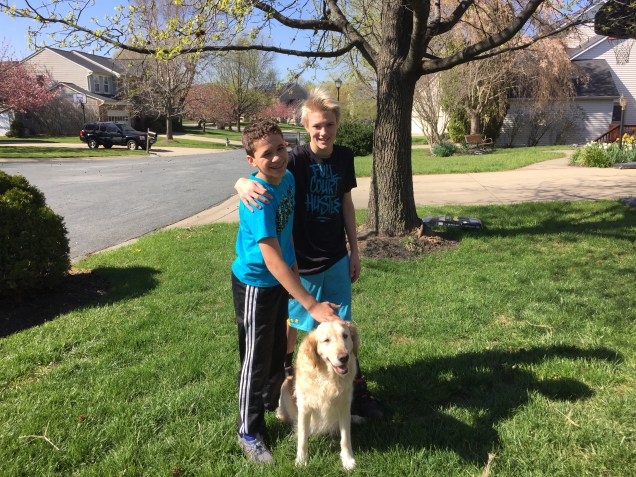I previously wrote a blog post about what I say when people ask me about Bryce. It is a difficult question to answer. I am an advocate for mental health awareness and for my son. I am a stigma fighter. I help raise awareness for mental health, I advocate for mental health reform. I volunteer for the Crisis Text Line, for Sheppard Pratt Health Care Center. I worked with adults with severe mental illness. I write this blog. My goal is to make people know that it makes you strong, not weak, to get help and that mental illness is no different than any other illness.
I have never shied away from telling people that Bryce had a mental illness, but it has often been difficult to explain or find the right words to describe him. It is sometimes difficult because you worry about how others will react or what people know about mental illness. It has also been frustrating because it has been confusing as to exactly what Bryce’s diagnosis is. When I asked my husband Terry, he says that he tells people simply that Bryce “has serious mental health issues”. For me, it depends on my own mood what I say. Sometimes I say that Bryce has severe special needs. Sometimes I say that Bryce has severe mental illness or that he has Bipolar Disorder, ADHD, Anxiety and developmental delays. That is a mouthful.
Yesterday we received the results of his most recent psychological and educational tests. The results stated that Bryce meets criteria for a child with Autism. Finally. We have tried to get that diagnosis for years. The doctor who did the testing and analyzed the results stated that Bryce probably always met the criteria. As of yesterday, I can say that Bryce is a child with Autism, Depression and Anxiety. It is a clear diagnosis and easy to say. I can say it again. Bryce is a child with Autism, Depression and Anxiety.
Nothing has changed between the day before yesterday and yesterday. Bryce is the same child today that he was last week. He is the same 14 year old he was two weeks ago, but he has a new diagnosis, a new label, a new way that I can described him. I have been given a new way that I can explain his behaviors, his quirkiness, the reasoning behind why he is the way he is.
But, along with this new diagnosis and label, I also feel guilty. I like the new way I can describe Bryce. Why? It is easier, clearer and of course, comes with less stigma. Yet, I am the one that is outspoken and fights stigma. I am the one who says it is ok to say you live with a mental illness. Bryce still has a mental illness. He still struggles everyday. But now we get to say Autism. Not one mention of Bipolar Disorder in the new report.
I want the stigma of mental illness to go away. I want people to think the same way about someone with Bipolar Disorder that they do about someone with cancer. But, even for me, even for someone who is an advocate for mental illness, it is easier to tell someone, Bryce is a child with Autism than Bryce is a child with Bipolar Disorder. It is also easier for me because it is less scary. Less scary that Bryce might hurt himself. But in reality, he still has suicidal ideation, he is still anxious and he still struggles with school.
So, does it even matter? I don’t know. I wish that I did. I want to say that it is not true. I want to say I am better than any words or labels. I want to say I am stigma free. I thought I was. But maybe all of us have a little stigma inside of us. We can only do our best.







 retriever Griffin, his favorite stuffed animals, his video games, jumping on the trampoline, and how much his family loves him. I hope these things always make him happy.
retriever Griffin, his favorite stuffed animals, his video games, jumping on the trampoline, and how much his family loves him. I hope these things always make him happy.